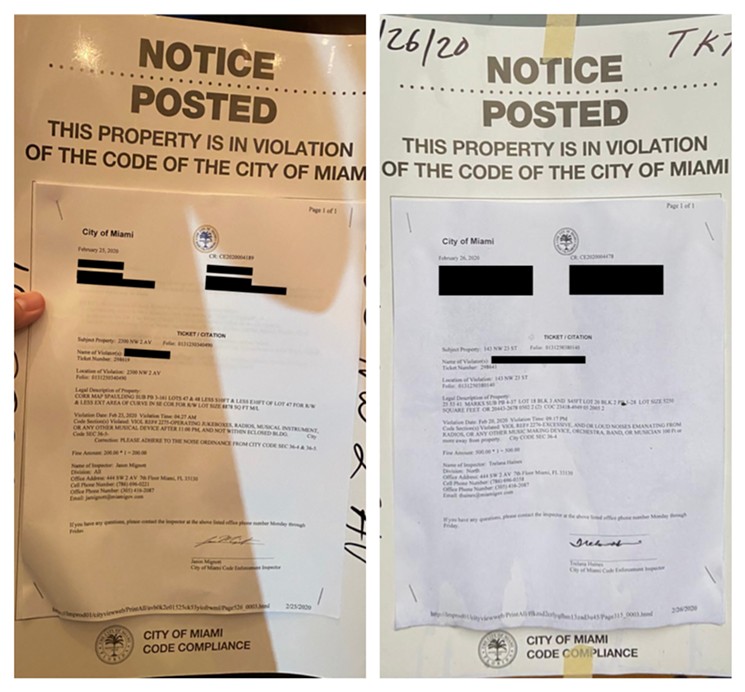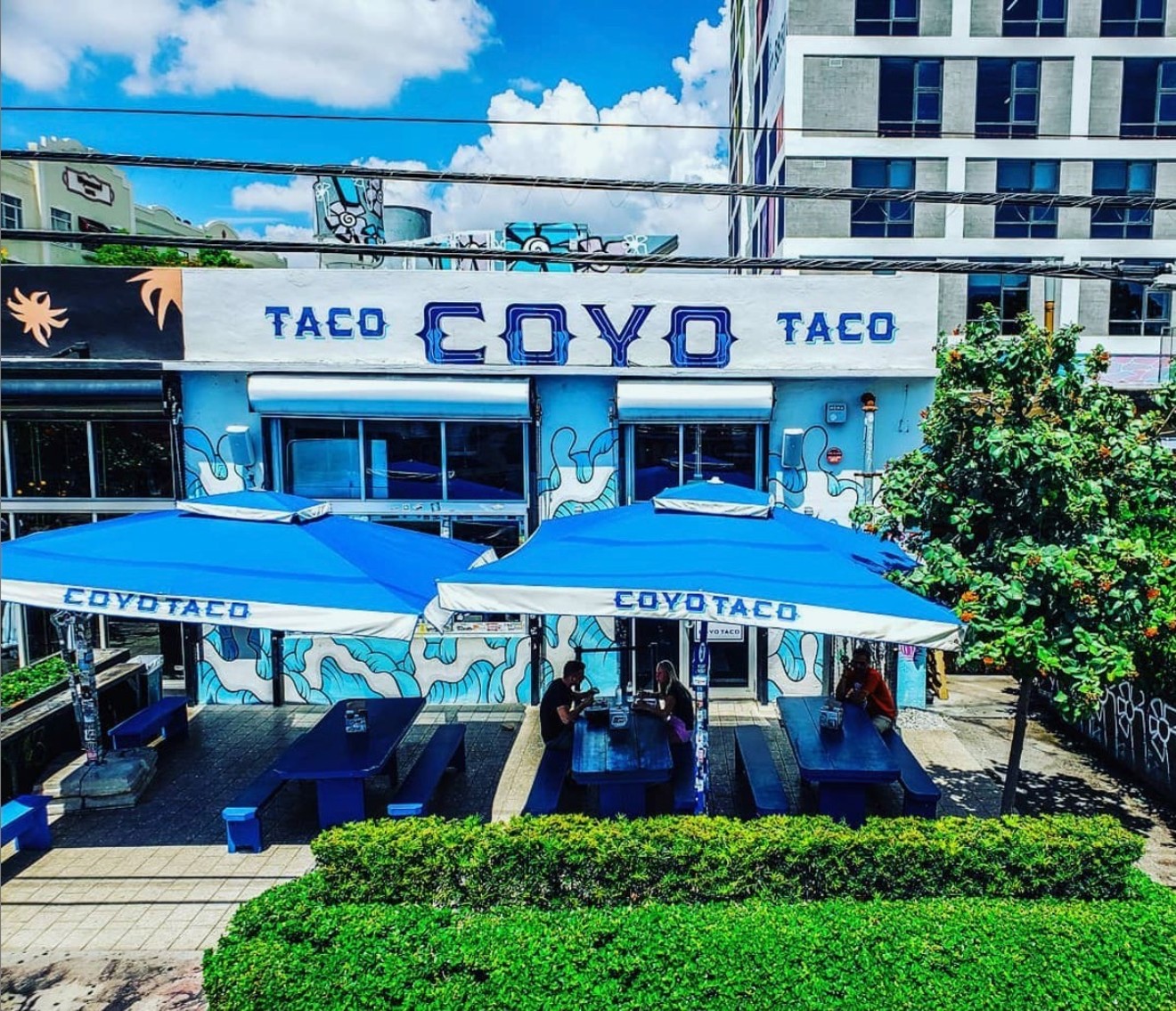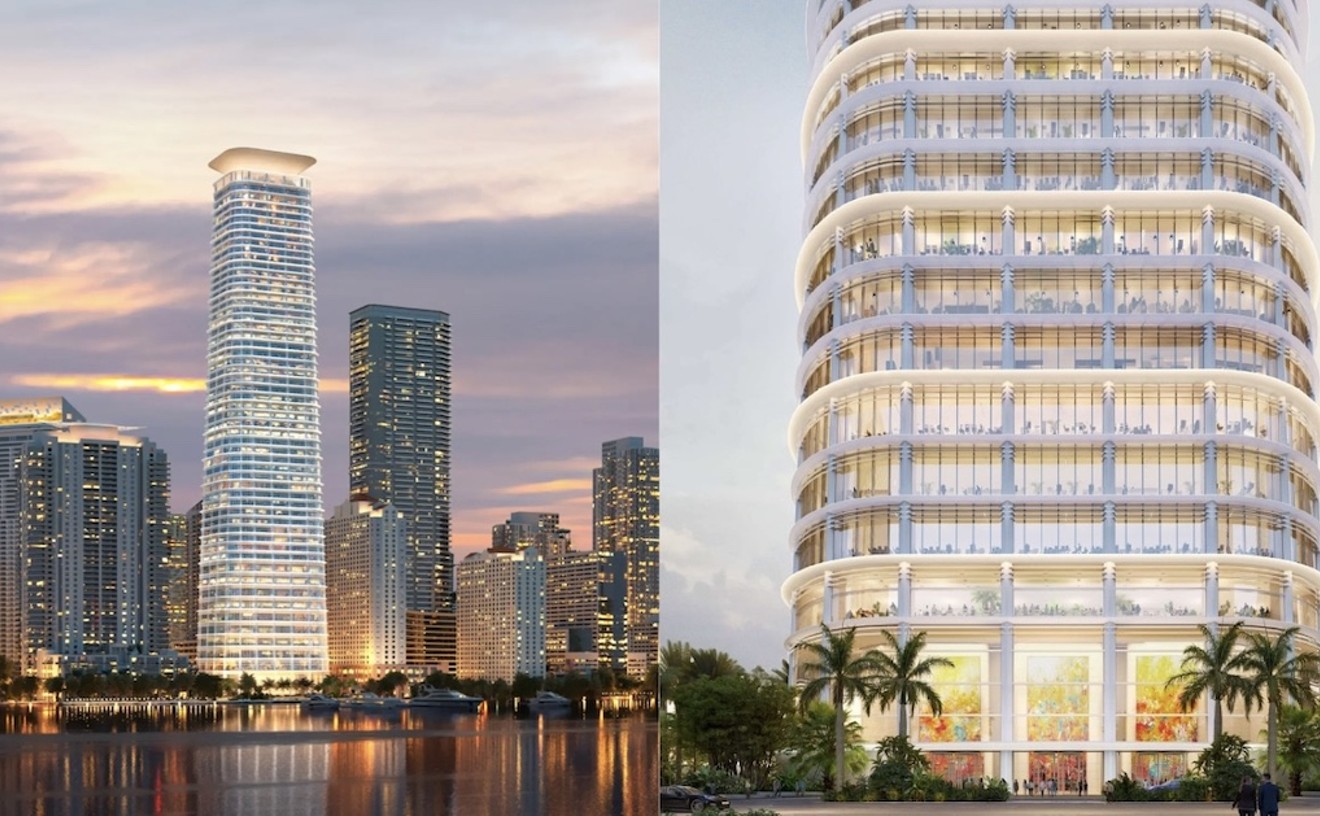One story contained a photo of a violation notice posted on Coyo Taco’s storefront at 2300 NW Second Ave.: a $200 citation for violating the City of Miami’s noise ordinance.
"I found out about this on social media," Vogtland says. "From guests saying, 'Wow, they’re trying to shut Coyo down!'"
Vogtland has received four such notices of violation for his two businesses — Coyo and 1-800-Lucky, a food hall that contains Asian restaurants, a bar, and a karaoke room. He and several other business owners and operators tell New Times they’ve seen an acute shift in code enforcement in the neighborhood since Wynwood Marketplace was shut down two weeks ago owing to alleged permit violations.
"It’s definitely a new thing none of us have felt before last week," Vogtland says. "It’s kind of like a blanket across the neighborhood. It’s been a challenge for our operations."
The Wynwood Marketplace shutdown sparked an online petition alleging City of Miami officials and luxury developers were conspiring to squelch nightlife in Wynwood by 11 p.m. every day, thus jeopardizing the neighborhood's identity as a hub for arts, culture, and entertainment. Not coincidentally, the area is experiencing a boom in office space and residential buildings. The petition drive was instigated by two Wynwood mover/shakers, Moishe Mana and Tony Albelo — the former a billionaire developer and the largest private landowner in Wynwood, the latter the man behind Swarm, an event production company with ties to Mana and several of his properties. (Swarm, which operates Wynwood Marketplace, contends that it has always been in compliance with respect to permits.)
Some business owners and operators say the City of Miami has cited them for more noise violations in the past week than it did in all their years of operation combined — even though they comply with the city's noise ordinance.
City of Miami code allows music to be played indoors until 3 a.m. but prohibits outdoor music after 11 p.m.
Additionally, the music may not be "plainly audible at a distance of 100 feet from the building, structure, vehicle or premises in which or from which it is produced." Music is acceptable when "played or operated in a closed building and the sound is not audible from outside the building so as to disturb the quiet, comfort or repose of persons in any dwelling, hotel or other type of residence," according to the city's noise ordinance.

A City of Miami code enforcement citation alleges Coyo Taco violated noise ordinances during non-business hours.
Photos courtesy of Sven Vogtland / Coyo Taco
"That is the root of why we’re so scared," says Philippe Kalifa, co-owner of El Patio, a bar and burger joint on NW 23rd Street.
Even stranger than the volume of citations over a short period of time, Kalifa and others say, is the fact that the notices claim the noise violations took place outside of business hours — i.e., while the establishment was closed — or during hours when businesses are allowed to play music.
For instance, one of Vogtland’s notices says the noise violations at Coyo took place at 4:27 a.m. February 23 — an hour at which no music was playing and cleaning crews were preparing the restaurant for the next day's business. A second noise citation for Coyo — this one for $500 — alleges the violations occurred at 9:17 p.m. February 20.
"It’s so random," Vogtland says.
Vogtland has filed appeals with the city for each of the citations. He has security camera footage, some of which New Times reviewed, showing the business was closed and only cleaning crews were present when noise violations allegedly occurred February 23.
Other businesses that have received warnings or citations — Gramps, Veza Sur, Dirty Rabbit, Mayami Mexicantina, El Patio, Wood Tavern, Vandalo, Booze Garden, Cafeina, Centro, and Le Chick — have appealed violations as well.
They all have a hearing scheduled for mid-April. Vogtland says he intends to play the video footage at the hearing.
As they wonder whether they're in danger of being shut down, the business owners are also curious about the timing of the strict and targeted enforcement. Anyone who has ventured outdoors in Wynwood knows the music is thumping well past 11 p.m. and sometimes can be heard blocks away.
Adam Gersten, who owns the bar Gramps, recalls that when he was building the bar around 2011, he saw different waves of enforcement — some strict, some more inconsistent. Compliance and good behavior from business owners and operators keep their exposure to code enforcement minimal, he says.
But it can be scary when code enforcement shows up. The constant specter of losing revenue is bad for businesses, customers, and residents alike, Gersten says.
He views the current push as just another wave of strict, by-the-letter enforcement. Others suspect it might be the city's attempt to level the playing field in the wake of the Wynwood Marketplace closure.
This being Miami, some see a political agenda at play.
Albert Garcia, board chairman of the Wynwood Business Improvement District, says an increasing number of business owners began speaking out about permit issues at the Wynwood Marketplace before the noise crackdown.
"Something doesn’t add up, and it’s troubling," Garcia says of the inconsistent enforcement.
When New Times sought clarification from the City of Miami, a spokesperson said that she was attempting to arrange an interview but that it would take some time.
"It’s a volatile time," Vogtland sums up. "And this is all our livelihoods. These are our businesses. I employ 337 people. They count on things going well."













